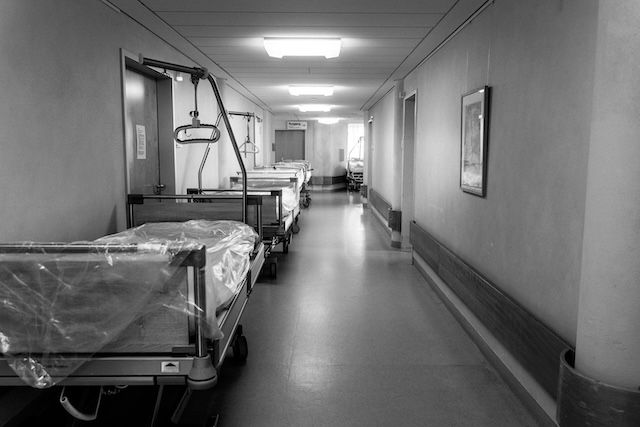Sudan’s War Deepens Maternal Health Crisis
Sudan’s war has driven maternal mortality to alarming levels, with women enduring collapsed health services, malnutrition, and displacement.
Sudan’s ongoing conflict between the Sudanese Armed Forces (SAF) and the Rapid Support Forces (RSF) has pushed the country into one of its gravest humanitarian emergencies in decades. As the war drags into its third year, women bear the heaviest toll, facing not only displacement and hunger but also a devastating surge in maternal deaths. The collapse of Sudan’s already fragile health system has left millions without access to essential medical services, exposing pregnant women and new mothers to life‑threatening risks.
Rising maternal mortality
According to Sudan’s Federal Ministry of Health, maternal mortality has spiked to 295 deaths per 100,000 live births. Between June 2023 and July 2024 alone, 870 pregnant women died, with 350 of these deaths occurring inside hospitals or health facilities. The World Health Organization (WHO) estimates that more than 1.1 million pregnant women in Sudan are now deprived of antenatal care, safe delivery assistance, and postpartum treatment.
Local testimonies underline the human impact of these figures. In Gereida, South Darfur, health services have virtually collapsed. With only one rural hospital serving three administrative units—and lacking even basic equipment or staff—residents must endure long, dangerous journeys to Nyala or further for basic tests. Such conditions transform preventable complications into fatal outcomes.
A mother’s loss
The story of Nora, a grieving mother from Gereida, illustrates the crisis starkly. Her pregnant daughter, gravely ill, had to be transported thousands of kilometres to Merowe Hospital in Northern State. She died shortly after childbirth, leaving behind an infant granddaughter. Stranded for months without funds or shelter, Nora returned to Gereida on foot, carrying both grief and a newborn. Her story is emblematic of countless Sudanese families enduring hardship and loss in the absence of functioning maternal care.
 Photo by Planet Volumes
Photo by Planet Volumes
A collapsing health system
Medical professionals confirm the scale of the collapse. Dr. Adiba Ibrahim of the Sudanese Medical Association reports that 90 percent of Sudan’s health institutions have ceased functioning, particularly in conflict zones. She warns of a broader health emergency compounded by outbreaks of cholera and dengue fever, alongside severe malnutrition. Figures from humanitarian groups point to 176,000 pregnant women and 850,000 lactating women suffering from acute malnutrition, while more than 45,000 children have died due to hunger.
The Ministry of Health also recorded a child mortality rate of 51 per 1,000 live births, underscoring how both mothers and infants are acutely vulnerable. United Nations estimates had placed maternal mortality at 270 per 100,000 live births before the war, but the new figures signal a dramatic escalation.
Violence and vulnerability
Beyond maternal and infant mortality, women face additional threats. The Organisation for the Fight Against Violence Against Women and Children has documented hundreds of sexual assaults, including nearly 260 cases involving children as young as five. These abuses, layered onto displacement and poverty, add to the burden borne by women.
Displaced families continue to struggle with access to even minimal care. In Tanqasi, a village along the River Nile, 70‑year‑old Radia lives outside a hospital with her injured daughter and young son. Unable to afford the daily hospital fees or surgery costs, the family survives by sharing food with other patients while Radia endures cold nights on the ground. Their story mirrors those of thousands who have lost homes, livelihoods, and dignity.
Humanitarian urgency
Health officials and international organizations warn that Sudan’s maternal health crisis requires urgent global attention. The Sudan Media Forum and the WHO highlight the immediate need for humanitarian aid, medical intervention, and targeted support for women and children. Without rapid action, preventable maternal and child deaths will continue to rise, compounding the country’s already dire humanitarian situation.
The plight of Sudanese women underscores a wider truth: wars not only destroy infrastructure and economies but also unravel the very fabric of communities by robbing women of safe motherhood and children of the chance to survive their earliest days. As conflict persists, the international community faces mounting pressure to respond, ensuring that stories like Nora’s and Radia’s are not repeated indefinitely.
Source: Dabanga: Radio - TV





